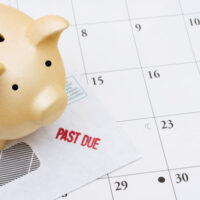Reaffirming a Debt: What You Should Know

When filing for Chapter 7 bankruptcy, there will come times when you’ll need to choose whether you want to reaffirm certain debts, preventing them from being discharged along with your other debts. This is a choice which you should make carefully, considering the pros and cons of retaining a debt that you could otherwise eliminate. Learn more about reaffirming debts in Chapter 7 bankruptcy below, and contact a seasoned New York bankruptcy attorney with any additional questions.
What does it mean to reaffirm a debt?
In the context of a Chapter 7 bankruptcy, reaffirming a debt means that you elect to keep paying a debt that you could have had discharged along with your other debts in your bankruptcy case. Generally, people choose to reaffirm debts when the debt is secured by collateral they’d like to retain. Car loans are one example of debts that bankruptcy petitioners often choose to reaffirm in order to keep their cars.
When can you reaffirm a debt?
Debtors are eligible to reaffirm debts when they’re current on payments owed on that debt. Otherwise, the petitioner will generally have to be able to prove to the lender that they could become current on the debt within about two months after filing. In some cases, the creditor will agree to allow a petitioner additional time to make up missed payments, or even to forgive the missed payments. With some types of debts, a lender may be willing to lower the amount of your monthly payments if you choose to reaffirm the debt.
When is it a good or bad idea to reaffirm a debt?
Reaffirming debts can provide a critical boost to your credit score after your bankruptcy case is completed. You may also want to reaffirm debts if you don’t have the necessary cash and it would be difficult to obtain the credit necessary to purchase a replacement of the property you’d lose if the collateral was repossessed. Reaffirming a debt is a bad idea if you won’t be better able to afford the monthly payments after your bankruptcy is complete. If keeping the property would cause you to fall behind again on your debts and re-injure your credit post-bankruptcy, then it isn’t worth keeping.
If you’ve fallen behind on your bills in New York and need help finding your way back into good financial standing, contact the knowledgeable and effective Hudson Valley bankruptcy attorneys at Rusk, Wadlin, Heppner & Martuscello, LLP for a consultation, in Kingston at 845-331-4100, and in Marlboro at 845-236-4411.